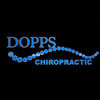Can Sneezing Really Cause a Herniated Disc? Understanding the Valsalva Effect – Insights from the Best Chiropractor in Overland Park Kansas
- Dr. Rory Dopps

- Sep 17, 2024
- 4 min read

Introduction
Have you ever sneezed and felt a sharp pain in your back? While it may seem harmless, sneezing can exert significant pressure on your spine, especially if you're dealing with underlying disc issues. The best chiropractor in Overland Park Kansas explains how the Valsalva maneuver—an involuntary action during sneezing—can increase pressure on spinal discs, potentially leading to herniation or worsening an existing condition. Understanding the relationship between sneezing, spinal pressure, and disc health is crucial for preventing long-term spinal problems.
Understanding Herniated Discs
A herniated disc occurs when the soft, gel-like center of an intervertebral disc pushes through its tougher outer layer. These discs serve as cushions between your vertebrae, allowing flexibility and shock absorption. When a disc herniates, it can press against nearby nerves, causing a range of symptoms including:
Pain: Sharp, shooting pain in the back, neck, or legs (sciatica).
Numbness or Tingling: Often felt in the limbs affected by the compressed nerve.
Weakness: Nerve compression can lead to muscle weakness, affecting mobility.
Herniated discs can result from lifting heavy objects incorrectly, trauma, or degeneration over time. However, even everyday actions like sneezing can aggravate an existing disc issue, causing increased pain and discomfort.
The Valsalva Maneuver and Sneezing
What is the Valsalva Maneuver?
The Valsalva maneuver is a natural bodily response that involves holding your breath and bearing down, causing a sudden increase in pressure within your chest and abdomen. This pressure helps with various bodily functions, but it also occurs involuntarily during actions like sneezing, coughing, or heavy lifting.
How Sneezing Affects the Spine
When you sneeze, the rapid increase in intra-abdominal pressure is transferred to the spine, particularly in the lumbar and cervical regions. If a disc is already weakened or compromised, this pressure can push it further out of alignment, potentially worsening a herniation or causing a new one. This is why sneezing can lead to sudden, sharp back pain in individuals with pre-existing spinal conditions.
Chiropractic Solutions for Preventing and Treating Disc Herniations
Spinal Adjustments to Prevent Disc Herniations
The best chiropractor in Overland Park Kansas emphasizes the importance of spinal alignment in preventing disc herniations. Regular chiropractic adjustments help realign the vertebrae, relieving pressure on the discs and minimizing the risk of injury caused by sudden actions like sneezing or coughing. Proper alignment ensures the spine functions optimally, reducing strain on the discs and preventing future problems.
Chiropractic Treatment for Herniated Discs
If you're already dealing with a herniated disc, chiropractic care offers a non-invasive solution. Chiropractic adjustments relieve nerve pressure caused by the herniation, promoting healing and reducing pain. Over time, chiropractic care improves spinal mobility and strengthens the spine, reducing the likelihood of further injuries.
Safe Techniques for Sneezing
Posture for Sneezing
To protect your spine during sneezing, it's essential to maintain proper posture. Here are some tips:
Stand or Sit Upright: Keep your back straight and engage your core muscles to help distribute pressure evenly across the spine.
Avoid Slouching: Slouching increases pressure on the spinal discs, which can lead to or exacerbate a herniation.
Breathing Tips
In addition to maintaining proper posture, practicing good breathing techniques can reduce the strain on your spine:
Exhale During the Sneeze: By exhaling gently while sneezing, you can prevent excessive pressure buildup in your abdomen and spine.
Control Your Breathing: Controlled breathing helps protect your spine from undue strain, especially during physical exertion or sneezing.
Nutritional Support and Supplementation
A balanced diet is crucial for maintaining spinal health and reducing the risk of disc herniation.
Dietary Recommendations for Disc Health
Anti-Inflammatory Foods: Consuming foods rich in omega-3 fatty acids—such as fatty fish, flaxseeds, and walnuts—can reduce inflammation around spinal discs.
Hydration: Staying well-hydrated helps maintain disc flexibility and prevents them from becoming brittle.
Supplement Recommendation
ArthroSoothe™ supports joint health by reducing inflammation and promoting cartilage regeneration. This supplement is particularly beneficial for individuals with spinal issues, as it addresses inflammation and promotes healing in compromised areas.
The DUTCH Test for Identifying Deficiencies
The DUTCH test is a comprehensive hormone and nutrient analysis that can help identify deficiencies contributing to inflammation and spinal problems. By correcting these imbalances, you can improve overall spinal health and enhance the body’s ability to prevent or recover from herniated discs.
Conclusion
While sneezing may seem harmless, it can lead to serious spinal issues for individuals with compromised discs. The best chiropractor in Overland Park Kansas recommends regular chiropractic care to keep your spine aligned and reduce the risk of herniation caused by the pressure generated during sneezing. Along with proper posture and breathing techniques, chiropractic adjustments play a crucial role in maintaining spinal health and preventing disc injuries.
If you’ve experienced back pain after sneezing or are concerned about your spinal health, schedule an online consultation with Dr. Rory Dopps at doppskc.com to learn how chiropractic care can help prevent and treat herniated discs.
Description: This lumbar cushion provides proper back support while sitting, helping to maintain spinal alignment and reduce the risk of herniated discs during activities like sneezing, coughing, or prolonged sitting.
Benefits: It promotes healthy posture, reducing the pressure on the lumbar discs and preventing strain.




Comentários